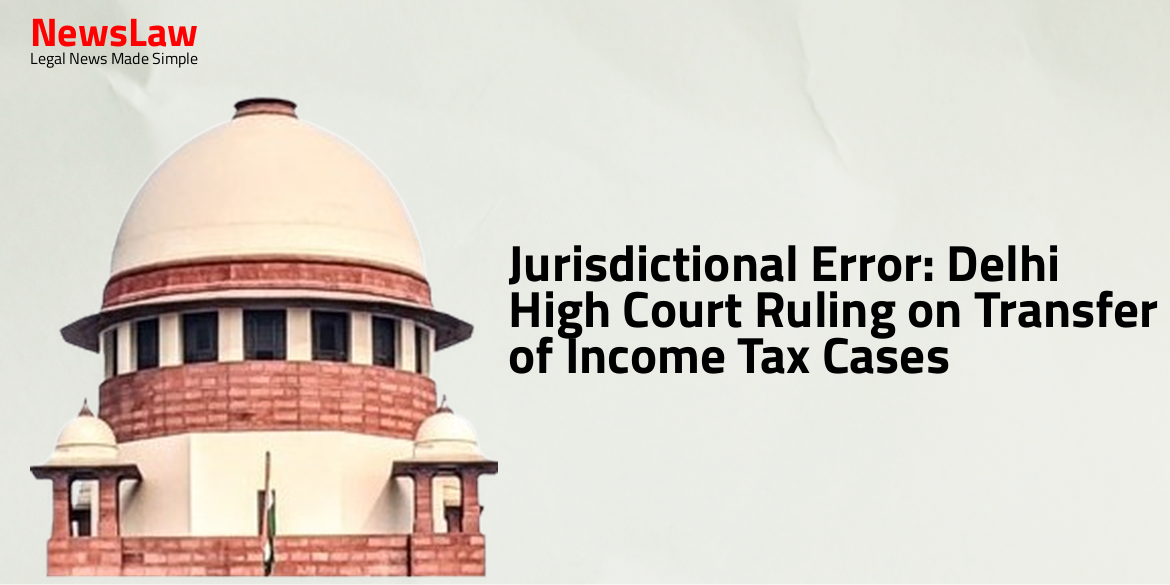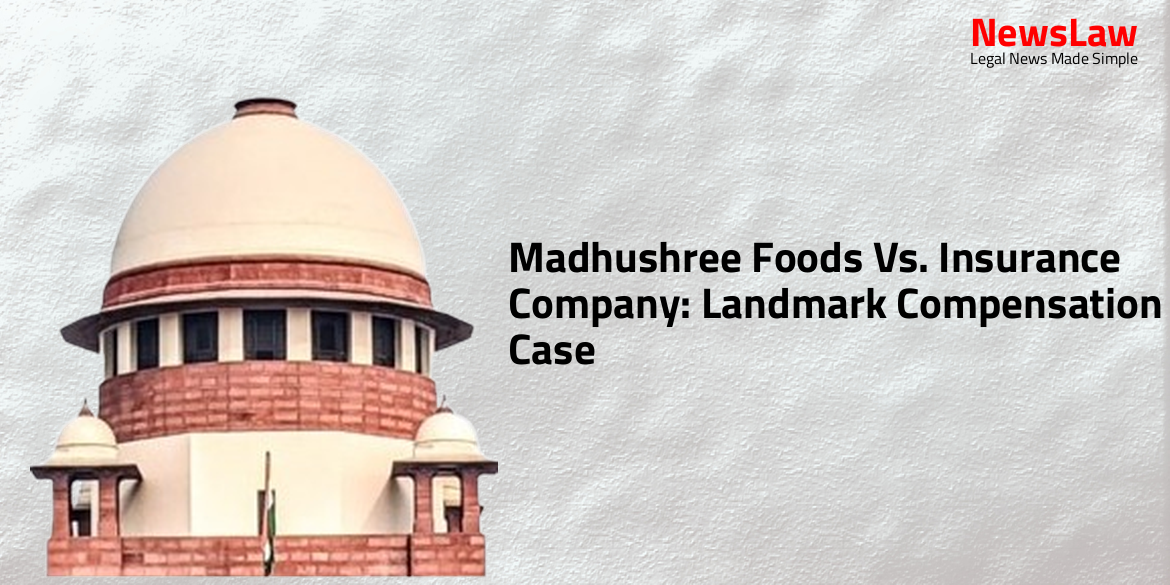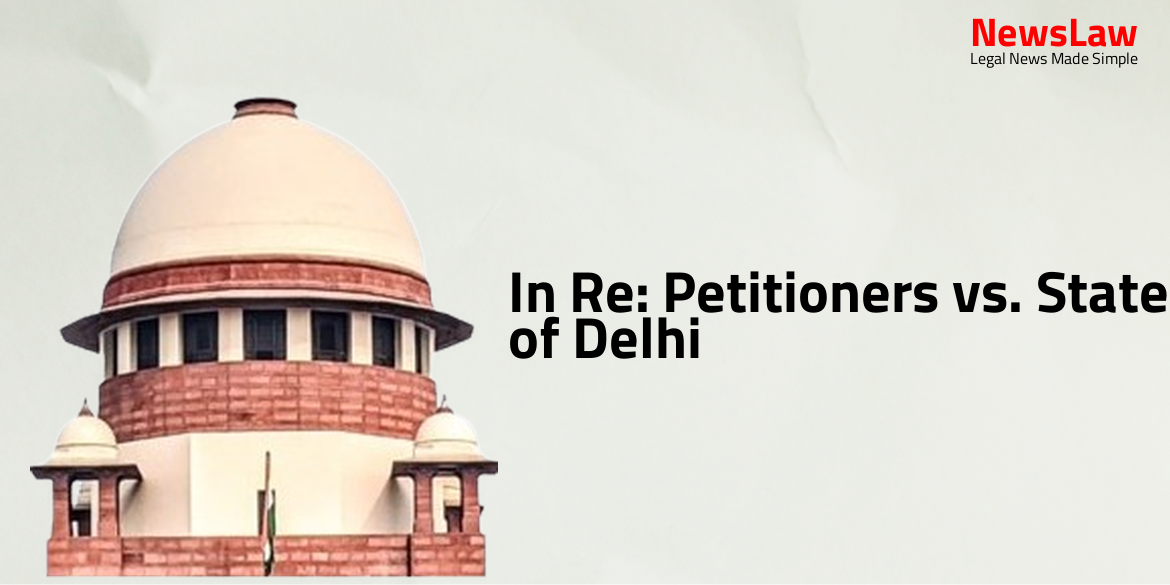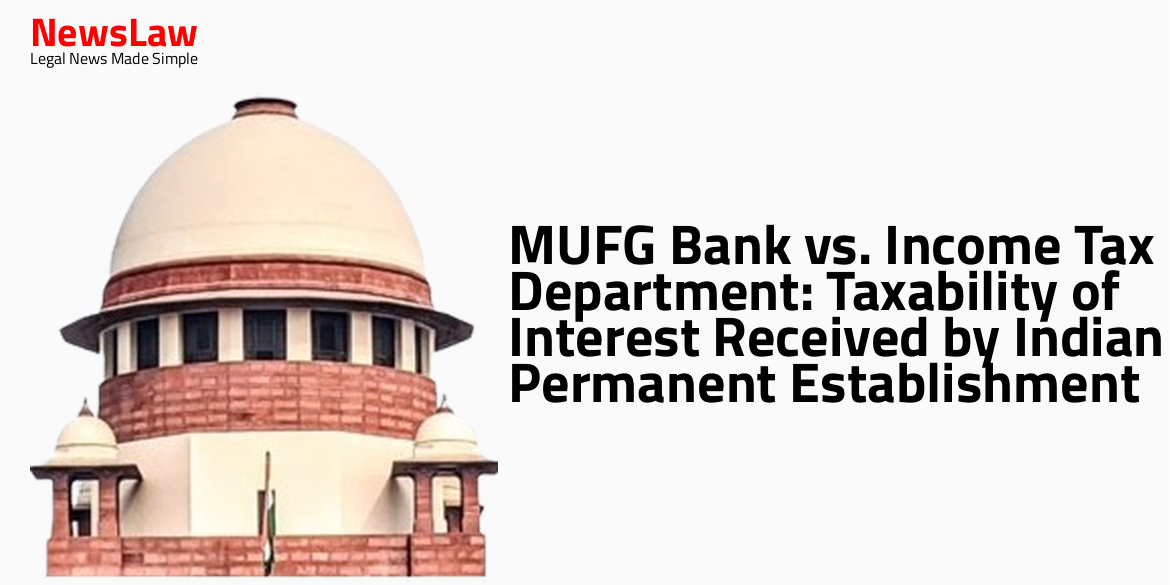In a recent ruling by the Delhi High Court regarding the transfer of income tax cases, the Court set aside the impugned orders dated 31.12.2017 and 30.09.2021 due to jurisdictional error. The case, involving ITA 124/2020 and ITA 8/2021, raises questions about the authority’s power to transfer cases between Assessing Officers. Explore the implications of the Court’s decision on the jurisdictional matters in income tax assessments.
Facts
- ITBA portal displayed assessment orders had been passed.
- ITO Ward 21(1), New Delhi has inherent jurisdiction as per CBDT circular dated 15 November 2014.
- Assessment orders do not suffer from jurisdictional error.
- Prescribed Deputy Commissioner of Income Tax jurisdiction as per notification on page 26 of the counter affidavit.
- Respondents rely on CBDT notification dated 22 October 2014 and subsequent notification by Additional Commissioner of Income Tax on 15 November 2014.
Issue
- Is it possible to transfer the case of the assessee from one AO to another in the absence of any Act?
- Short controversy revolves around this question.
- No specific Act governs the transfer of the case in this context.
Analysis
- The jurisdictional Assessing Officer of the assessee from AY 2008-09 to AY 2015-16 was DCIT, Central Circle-16/20, New Delhi.
- The notification dated 15 November 2014 raised the question of whether it would reverse centralization of assessment.
- Sub-section (5) of section 120 confirms concurrent jurisdiction of Assessing Officers based on specified criteria.
- Transfer of cases under Section 127 is for public interest and administrative convenience, not exclusive jurisdiction.
- The legislative mandate aims at effective tax collection and administrative ease rather than exclusive jurisdiction.
- The explanation in Section 127 includes all proceedings under the Act in the term ‘case’.
- Section 127 is a machinery provision to facilitate effective tax collection and should be applicable accordingly.
- Reasons need not be recorded for transfer under the proviso of Section 127 if public interest demands otherwise.
- Convenience of the assessee is considered, but adjudication and tax collection interests take precedence over logistical difficulties.
- The Board has wide powers to issue orders considering territorial area, persons concerned, incomes, and cases; multiple Assessing Officers can have concurrent jurisdiction.
- The word ‘jurisdiction’ in Section 120 is not for exclusive allocation but allows for concurrent exercise of powers by multiple Assessing Officers.
- Sub-section (5) of section 124 allows the higher authority to direct the lower authority to exercise powers and functions in case of concurrent jurisdiction between Assessing Officers of different classes.
- The Act does not allow for multiple assessments by different Assessing Officers or assessments of part of an income.
- Section 127 of the Act provides for transfer of cases between Assessing Officers and recognizes multiple or concurrent jurisdictions.
- The Act ensures that only one assessment is conducted for the same year by preventing two assessments by different Assessing Officers with concurrent jurisdiction.
- The power of transfer under Section 127 is viewed as a machinery provision for the authorities in public interest.
- In the case of challenges to the transfer of cases between officers, the Supreme Court has upheld the validity of such provisions to ensure effective functioning.
- The transfer of income tax cases between officers is permitted under the law, and it must be given full effect to serve public interest.
- In Section 124(3), the jurisdiction of an Income Tax Officer is defined in relation to the area assigned to him.
- The provision indicates that a transfer of cases between Income Tax Officers in the same locality is done for administrative convenience and does not imply any prejudice.
- In cases where assessments are transferred between officers in different wards within the same place, no specific reasons need to be given as these transfers are routine for administrative purposes.
- Notifications passed under Section 120 of the Act must align with the legislative mandate of Section 127.
- The jurisdiction of the DCIT over the case of the assessee is assigned separately.
- Once a case is centralized, it cannot be transferred to another AO without contradicting the underlying objective of the Act as stated in Section 127.
Decision
- The impugned orders dated 31.12.2017 and 30.09.2021 are quashed and set aside due to jurisdictional error.
- ITA 8/2021 is also set aside as a result.
- The observations made are limited to the question at hand – whether the AO can proceed with the assessment in the absence of jurisdiction.
- The answer to that question is in the negative.
- ITA 124/2020 and ITA 8/2021 are disposed of along with any pending applications.
- The Revenue is free to take fresh steps through jurisdictional authorities if permissible under the law.
- The impugned orders dated 31.12.2017 and 30.09.2021 are set aside.
- The writ petition is allowed and disposed of accordingly along with any pending applications.
Case Title: RAJ SHEELA GROWTH FUND (P) LTD. Vs. INCOME TAX OFFICER, WARD – 21(1), DELHI (2024:DHC:3722-DB)
Case Number: ITA-124/2020



